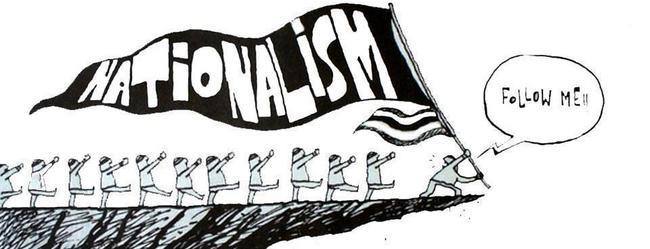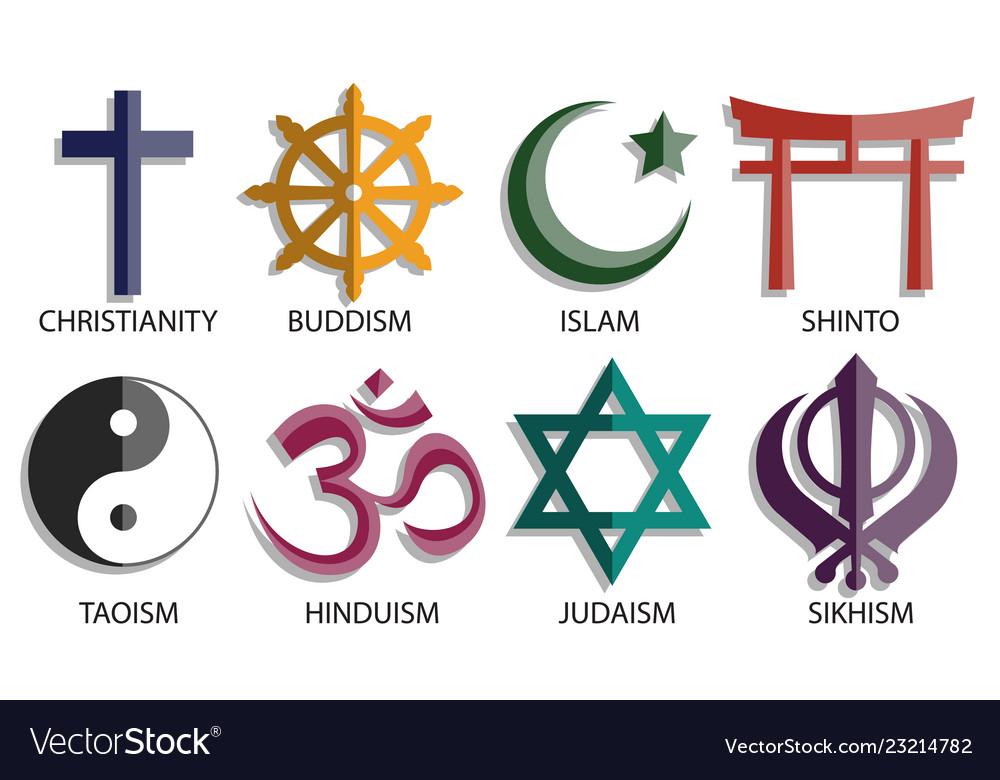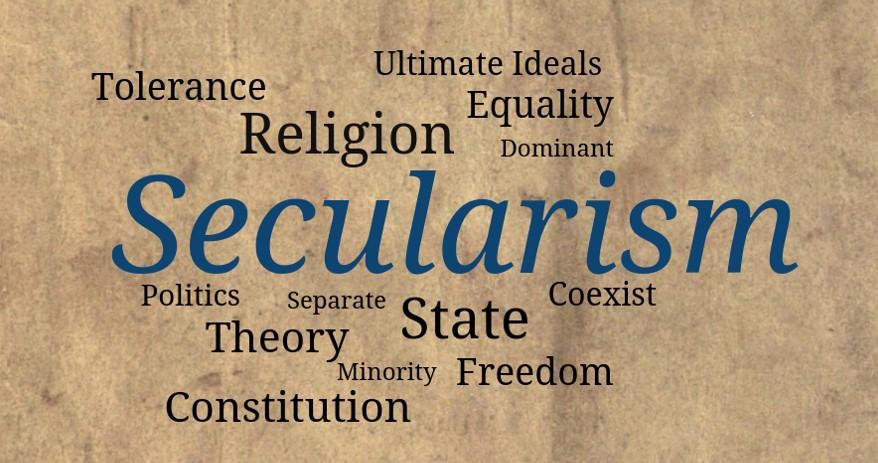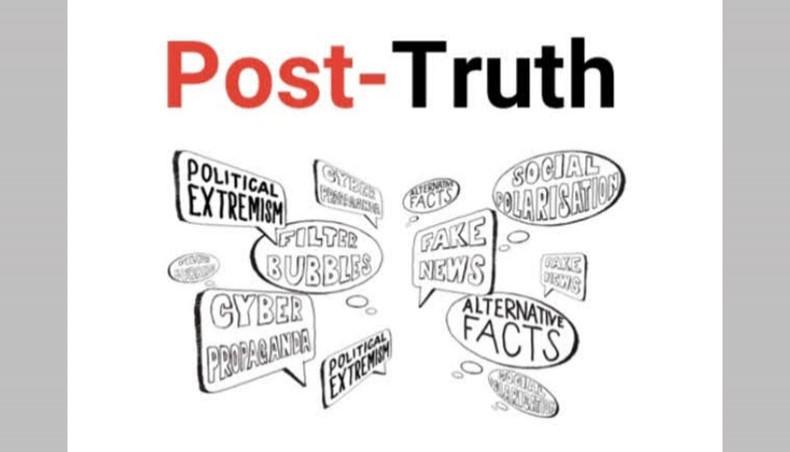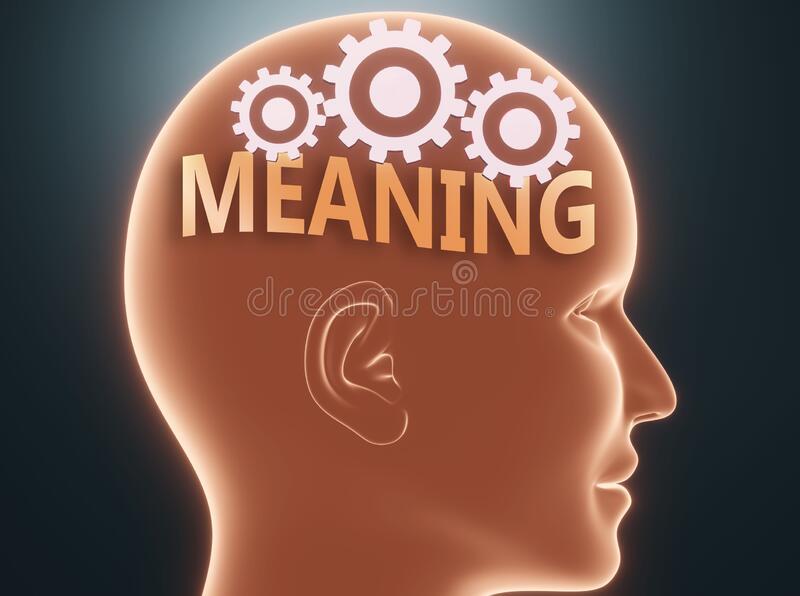K 's Key Ideas from 21 Lessons for the 21st Century
by Yuval Noah Harari
Ideas, facts & insights covering these topics:
35 ideas
·62.9K reads
190
12
Explore the World's Best Ideas
Join today and uncover 100+ curated journeys from 50+ topics. Unlock access to our mobile app with extensive features.
1 – Disillusionment
Yuval Noah Harari starts the book by talking about the disillusionment visible in modern society. For example, the political disillusionment seen in many European countries. He argues that one of the driving factors for this disillusionment is information overload. Our brains do not easily process facts, numbers and equations. Humans think in stories, and this is how political disillusionment can spread, leading to ideologies like fascism and communism. The lesson to learn from this is you should utilize stories in your business endeavors. You should also ensure these stories are simple.
707
6.55K reads
The future offers opportunities for new types of stories that include humans, superhumans and artificial intelligence. Harari believes AI will become increasingly sophisticated. He also believes that superhumans will soon be created that combine AI and humans. Despite a change in the characters in our stories, Harari still believes that the liberal story we see today will prevail.
619
4.61K reads
2 – Work
The future of the workplace will include significantly more computers than we see today. As we develop a better understanding of human emotions, desires and choices, computers will become more versatile in workplaces. Harari uses the example of self-driving vehicles. He cites a study by the US National Highway Traffic Safety Administration from 2012. This study found that 31% of fatal crashes involved alcohol abuse, 30% speeding and 20% distracted drivers. None of these crashes would be possible with a self-driving car.
622
3.96K reads
Often people worry about the possibility of AI completely replacing us in the workplace, leaving us with no jobs. Harari does not believe this is true, though. He believes that AI will actually help create new jobs for humans. Those who are willing to cooperate with AI will be the ones who flourish in future workplaces. Harari also believes that AI will improve not only automation but also our creativity. For example, chess tournament judges are continually searching for hints that a contestant is getting help from computers.
628
3.39K reads
The easiest way to identify if somebody is cheating by using a computer aid is when they play particularly creative moves. So, as creativity is a sign of AI influence, we can also expect AI to play an important role in the creative arts.
The lesson to learn from all this is that the future is bright. We should not be worried about AI’s potential in the workplace and instead, see it as an opportunity. These tools can help us move away from the mundane tasks people don’t want to do and allow us to spend more time improving society.
619
2.94K reads
3 – Liberty
Harari believes elections are not about what we think but what we feel. Despite clear flaws in democracies, most believe it is still better than all its alternatives. Harari argues that big data and AI have the potential to run the world in the future. If we can make decisions on education, work and society based on data, there is no need for democratic elections. We already rely on big data for personal finance, big business and war. So, it seems likely that political decisions are the next step.
628
2.73K reads
Harari provides the example of how data has been used in warfare to strengthen this argument. He states that whenever Palestinians make a phone call or post something on social media, they are monitored by Israeli microphones, cameras, drones and software. Then, this data is analyzed by algorithms. These algorithms tell the Israeli security forces where potential threats might arise. Without this big data, the Israeli soldiers would not be controlling approximately two and a half million Palestinians. This is an example of big data making human decision-making easier.
613
2.33K reads
4 – Equality
Data is far more accessible than our current examples of resources. Land, machines and other resources make it easy for people to acquire wealth unavailable to others. But data is everywhere and can move at the speed of light. You can make as many copies as you want. So, a future problem is understanding how best to regulate data ownership. This issue has already surfaced with big tech companies struggling to make the right decisions about personal data.
613
2.15K reads
5 – Community
Technology addiction is significantly impacting human connection and community. The internet has helped people who live far away to keep in touch. For example, the author explains he can easily speak to his cousin in Switzerland. Without technology, he could easily lose connection with this relative. That said, technology has negatively impacted our more immediate connections and communities. The author explains that technology has made it harder for him to talk to his husband over breakfast as they are constantly looking at their smartphones.
609
1.92K reads
6 – Civilization
Historically, humankind has been divided into countless isolated civilizations. Thousands of years ago, these civilizations would have consisted of merely a handful of people. Although the number of independent civilizations has reduced over time, Harari argues the future holds a single global civilization. We are already at a stage where we can contact almost anyone in the world. The outcome of this type of civilization is that people will care more about their enemies than partners due to increased competition.
612
1.74K reads
7 – Nationalism
There is a difference between benign patriotism and nationalism. Patriotism should be built on the idea that your nation is unique (which is true of all countries). It is when people start believing their nation is superior that issues arise. The issue with nationalism is that these narrow beliefs bleed into their other worldviews.
613
1.74K reads
Harari believes technology has the potential to solve the issues it has encouraged. He uses the example of lab-grown meat. Research suggests animal agriculture creates more carbon emissions than all forms of transportation combined. So, to tackle climate change, there needs to be an alternative. Lab-grown meat could offer this alternative. Although expensive at first, Harari explains that clean meat is expected to be cheaper than slaughtered meat within a decade.
613
1.58K reads
Harari uses the example of climate change skepticism. A left-wing socialist will rarely tweet claiming that climate change is a Chinese hoax. These types of tweets are almost solely produced by the nationalist right. These nationalists would rather deny truth than have to work internationally to solve a global problem
Harari also argues that the way we approach politics must change if we want to counteract nationalism. National politics will never tackle the problem of national identity. So, we must globalize politics, science, and economics through global governance.
613
1.5K reads
8 – Religion
To help us understand the problem of religion in modern society, Harari outlines the three types of problems we face:
- Technical problems
- Policy problems
- Identity problems
Harari points out that Karl Marx had previously argued that religion doesn’t have much to contribute to policy debates.
607
1.68K reads
The author agrees and subsequently believes that war between religions is not policy-based. Instead, it appears to be a combination of technical and identity problems. That said, religion allows the smallest differences to have a significant impact. For example, Eastern Orthodox and Western Christians split due to the inclusion/exclusion of the words “and the son” in a creed. So, Harari believes Freud was potentially correct when he claimed religion involves an obsession with minor differences.
615
1.46K reads
9 – Immigration
Harari starts by specifying the basic conditions required for immigration to occur. There are three of them and they are:
The host country allows immigrants into their country
The immigrants are expected to embrace the norms and values of the host country
If the immigrants integrate, they will eventually become equal members of the host country
Harari believes that a large proportion of people who dislike immigration are not racists. They are actually culturists. Most people who are anti-immigration are so because they want to maintain their nation’s current culture.
616
1.33K reads
For example, there will be numerous liberal minorities who can migrate to an intolerant society considered acceptable by the host society. But, there will be a threshold where numbers of liberal minorities will be counteracting the country’s intolerant society. To better understand anti-immigration people, we must accept that they might be culturists rather than racists.
605
1.25K reads
10 – Terrorism
Harari believes the overreaction to terrorism poses a far greater threat than terrorism itself. Terrorists have killed very few people but can terrify billions due to political responses. The author points out that each year since 9/11, only 50 people are killed in the EU, 10 in the US and 7 in China. Globally, 25 thousand people die of terrorism and 7 million people die of air pollution. Despite this difference, terrorism produces considerably more fear and gains far more attention.
619
1.28K reads
So, instead of encouraging fear in society, Harari believes effective counter-terrorism should include the following three things:
- The government should make sure their actions against terror networks are relatively hidden
- The media must be forced to avoid hysteria and overreporting on anything terror-related
- You and all other citizens must liberate their imaginations from the terror and remember how uncommon terrorist acts are
608
1.23K reads
11 – War
The prevalence of war has dropped considerably over the past few decades. Harari believes this is partly due to our transition away from fighting over resources and toward fighting over knowledge. You could previously obtain wheat fields, goldmines and oil fields from warfare. You can’t conquer knowledge through war. So, Harari believes that modern warfare will be based on information technology and biotechnology rather than guns and bombs.
612
1.15K reads
“At present, people are happy to give away their most valuable asset—their personal data—in exchange for free email services and funny cat videos. It’s a bit like African and Native American tribes who unwittingly sold entire countries to European imperialists in exchange for colorful beads and cheap trinkets.”
– YUVAL NOAH HARARI
628
1.85K reads
12 – Humility
The highlight of this chapter is that humans naturally show humility. Apes have evolved the tendency to help the poor and needy. They evolved these behaviors millions of years before the Bible instructed ancient Israelites to do the same. So, there is no need to rely on a religious text or any other teachings to convince society they need to show humility. Society will naturally show humility without religion.
609
1.14K reads
13 – God
Building on his point from chapter 12, Harari also thinks you do not need to believe in God to be moral. Morality is about reducing suffering and this does not require belief in a myth or story. Again, society does not need to believe in a powerful God to be scared into doing the right thing. Immoral behavior is always counterproductive in the long run, so society will always shun those who behave in this way. For example, no one wants to live in a society where strangers are constantly raped and murdered.
613
1.12K reads
“Morality doesn’t mean ‘following divine commands’. It means ‘reducing suffering’. Hence in order to act morally, you don’t need to believe in any myth or story. You just need to develop a deep appreciation of suffering.”
– YUVAL NOAH HARARI
624
1.16K reads
14 – Secularism
The alternative to building a society on God is building one on secularism. Harari notes we must remember the foundation of the secular code:
- Truth
- Compassion
- Equality
- Freedom
- Courage
- Responsibility
613
1.21K reads
By far the most important of these characteristics is truth. Harari believes social reality is the ideal we should aspire to. Social reality is built upon a commitment to modern science rather than faith. Once we uncover scientific achievements, we must also cherish the responsibility of these findings. Do not credit these scientific findings to divine protectors & instead view them as an outcome of human knowledge and compassion.
Adopting this secular approach will challenge the idea of blindly praying for change. Instead of hoping for change, society can actively make positive change happen.
608
977 reads
15 – Ignorance
Just like animals, humans make most decisions based on emotional reactions and shortcuts. But, emotions and heuristics are not sufficient in the modern world. The key to human success in the modern world is our ability to think together in large groups. This has allowed us to rely on others’ skills for almost our needs. Steven Sloman and Philip Fernbach call this the “knowledge illusions.” With our current collective knowledge, finding the truth through individual experimentation is a waste of time. We are better off remaining individually ignorant but create collective knowledge.
610
982 reads
16 and 17 – Post-Truth
The modern world is full of fake news. Harari describes modern fake news as one thousand people believing a made-up story for one month. When a billion people believe a made-up story for a thousand years, that’s what Harari calls religion. We can learn about the power of fiction by looking at religion. Fiction can bring people together and make large-scale human cooperation possible. So, we must start using fiction to push good science to the masses. For example, a good science fiction movie is worth far more than an article in Science or Nature.
615
980 reads
18 – Science Fiction
Building on from the last chapter, Harari spends some time talking in greater depth about science fiction. He believes that it is the most important artistic genre in the 21st century. That said, the most popular science fiction is not necessarily very accurate, e.g., The Matrix and Westworld. So, science fiction must be more responsible in how it depicts scientific realities. Without taking responsibility in this way, we could be left with a society where most people are focusing on the wrong problems.
611
952 reads
Harari believes the worst failing of science fiction is its confusion of intelligence with consciousness. He is not worried about a war between robots and humans. He instead believes there could be conflict between a small set of superhuman elites. So, Harari argues that Karl Marx is still a better guide on artificial intelligence than Steven Spielberg.
609
935 reads
19 – Education
Much of what children learn today will be irrelevant in 2050. So, teachers need to stop overloading their students with information and develop their ability to make sense of new information. Future adults need to identify important information among all the irrelevant data.
625
1K reads
20 – Meaning
Harari includes the teachings of Buddha to explain the fluidity of meaning. The Buddha taught that there are three basic universal realities:
- Everything is constantly changing
- Nothing has any enduring essence
- Nothing is completely satisfied
Because everything is ever-changing, the Buddha believes that life has no meaning. This is not an issue, though. You do not need to try and create meaning; suffering emerges from attempting to do so.
623
950 reads
21 – Meditation
Harari agrees with ancient philosophers by arguing that the deepest source of our suffering is our minds. In fact, suffering does not objectively exist outside of minds. Meditation allows you to better understand this reality and challenge your mind. It helps you focus on your consciousness, which is the greatest mystery in the universe. Meditation also prepares us for the future, as Harari believes we should understand our minds before the algorithms make a match up for us.
617
968 reads
IDEAS CURATED BY
CURATOR'S NOTE
In a world deluged by irrelevant information, clarity is power. Censorship works not by blocking the flow of information, but rather by flooding people with disinformation and distractions. 21 Lessons for the 21st Century cuts through these muddy waters and confronts some of the most urgent questions on today’s global agenda.
“
Curious about different takes? Check out our 21 Lessons for the 21st Century Summary book page to explore multiple unique summaries written by Deepstash users.
K 's ideas are part of this journey:
Learn more about education with this collection
How to beat procrastination
How to enhance your creative thinking
How to create a smooth transition in a new endeavor
Related collections
Different Perspectives Curated by Others from 21 Lessons for the 21st Century
Curious about different takes? Check out our book page to explore multiple unique summaries written by Deepstash curators:
1 idea
Aayushi P's Key Ideas from 21 Lessons for the 21st Century
Yuval Noah Harari
1 idea
Girish Botale's Key Ideas from 21 Lessons for the 21st Century
Yuval Noah Harari
20 ideas
Talha Mumtaz ✔️'s Key Ideas from 21 Lessons for the 21st Century
Yuval Noah Harari
Discover Key Ideas from Books on Similar Topics
12 ideas
Homo Deus: A Brief History of Tomorrow
Yuval Noah Harari
4 ideas
Homo Deus
Yuval Noah Harari
13 ideas
Sapiens
Yuval Noah Harari
Read & Learn
20x Faster
without
deepstash
with
deepstash
with
deepstash
Personalized microlearning
—
100+ Learning Journeys
—
Access to 200,000+ ideas
—
Access to the mobile app
—
Unlimited idea saving
—
—
Unlimited history
—
—
Unlimited listening to ideas
—
—
Downloading & offline access
—
—
Supercharge your mind with one idea per day
Enter your email and spend 1 minute every day to learn something new.
I agree to receive email updates




